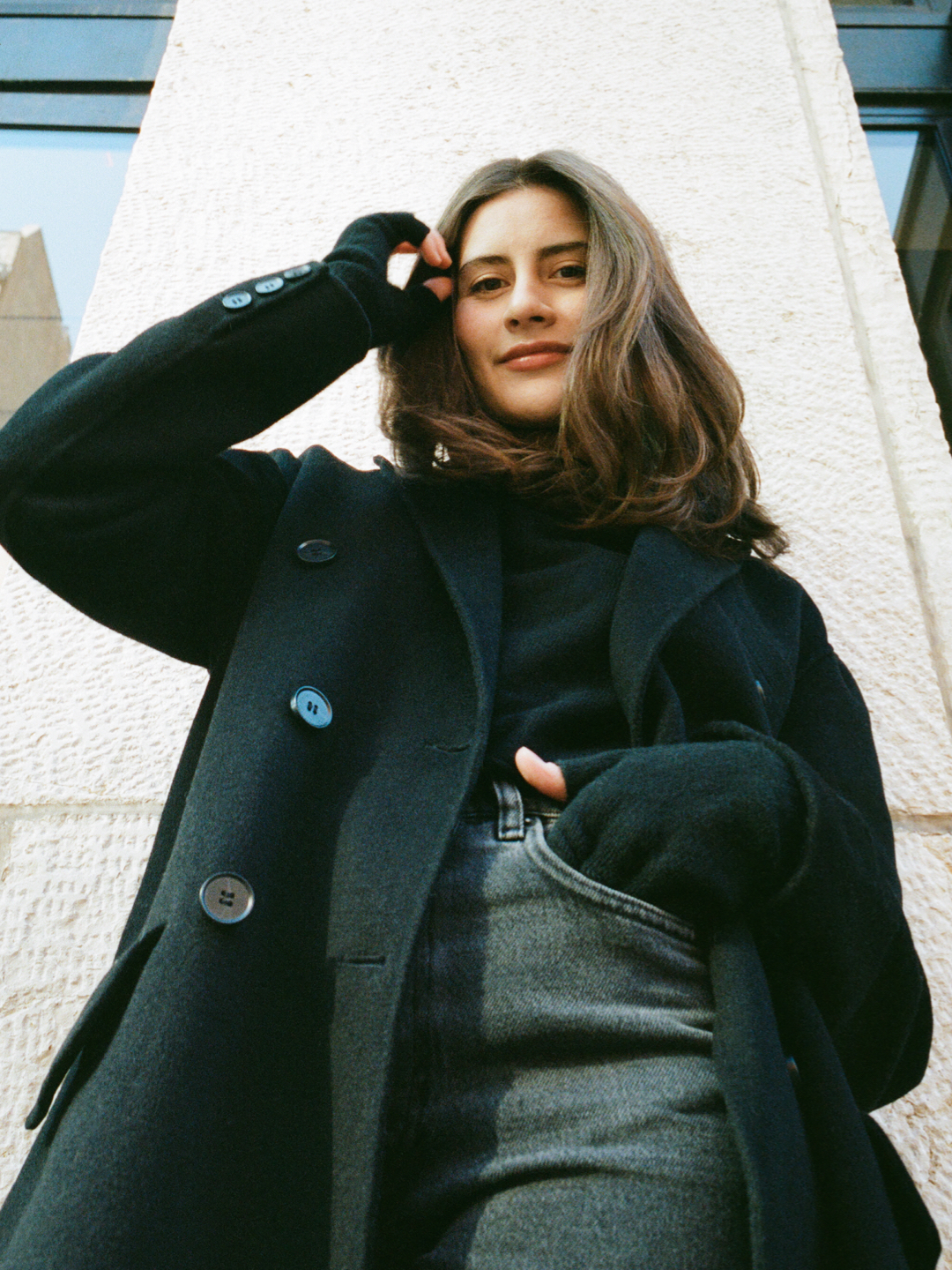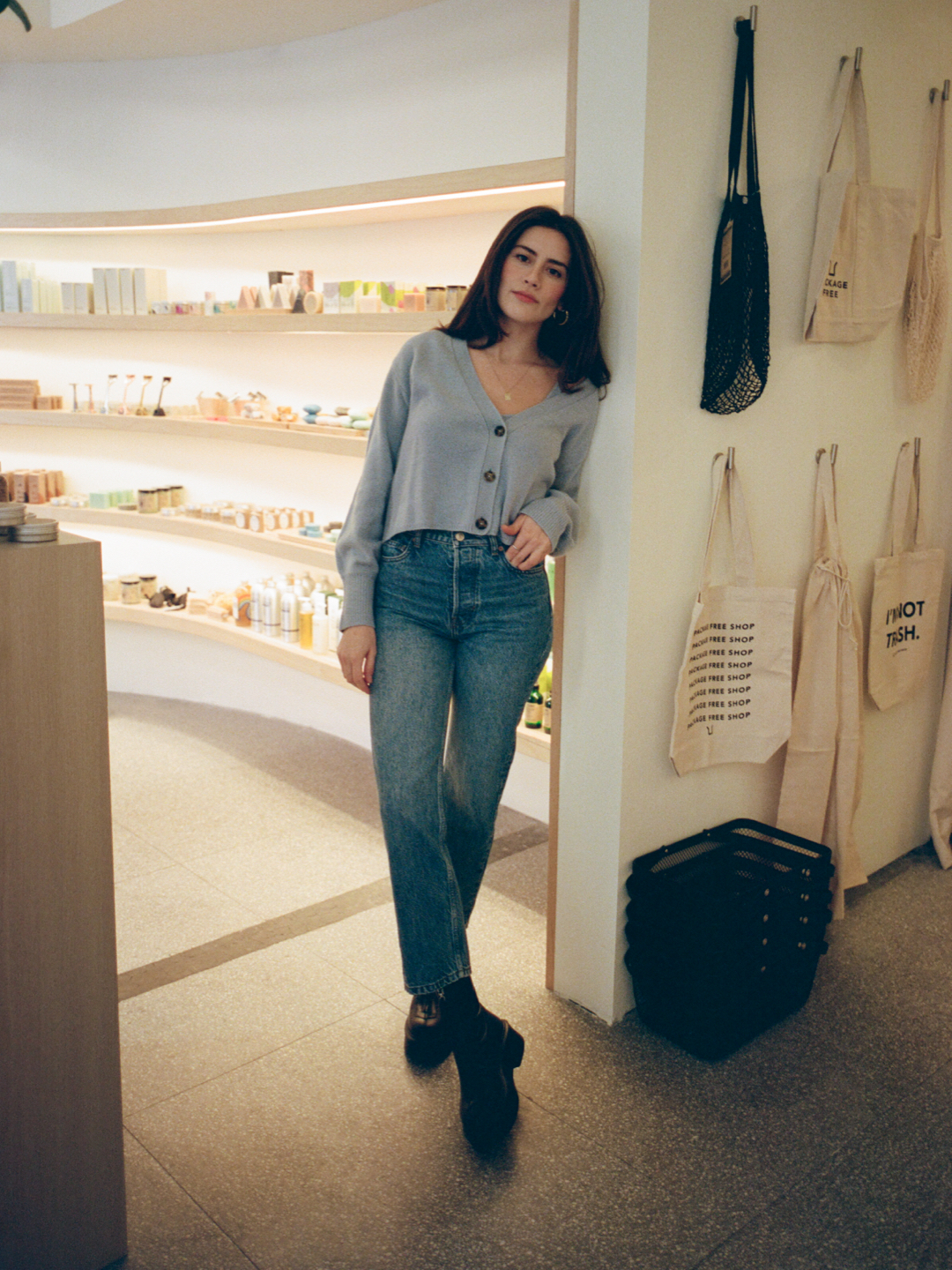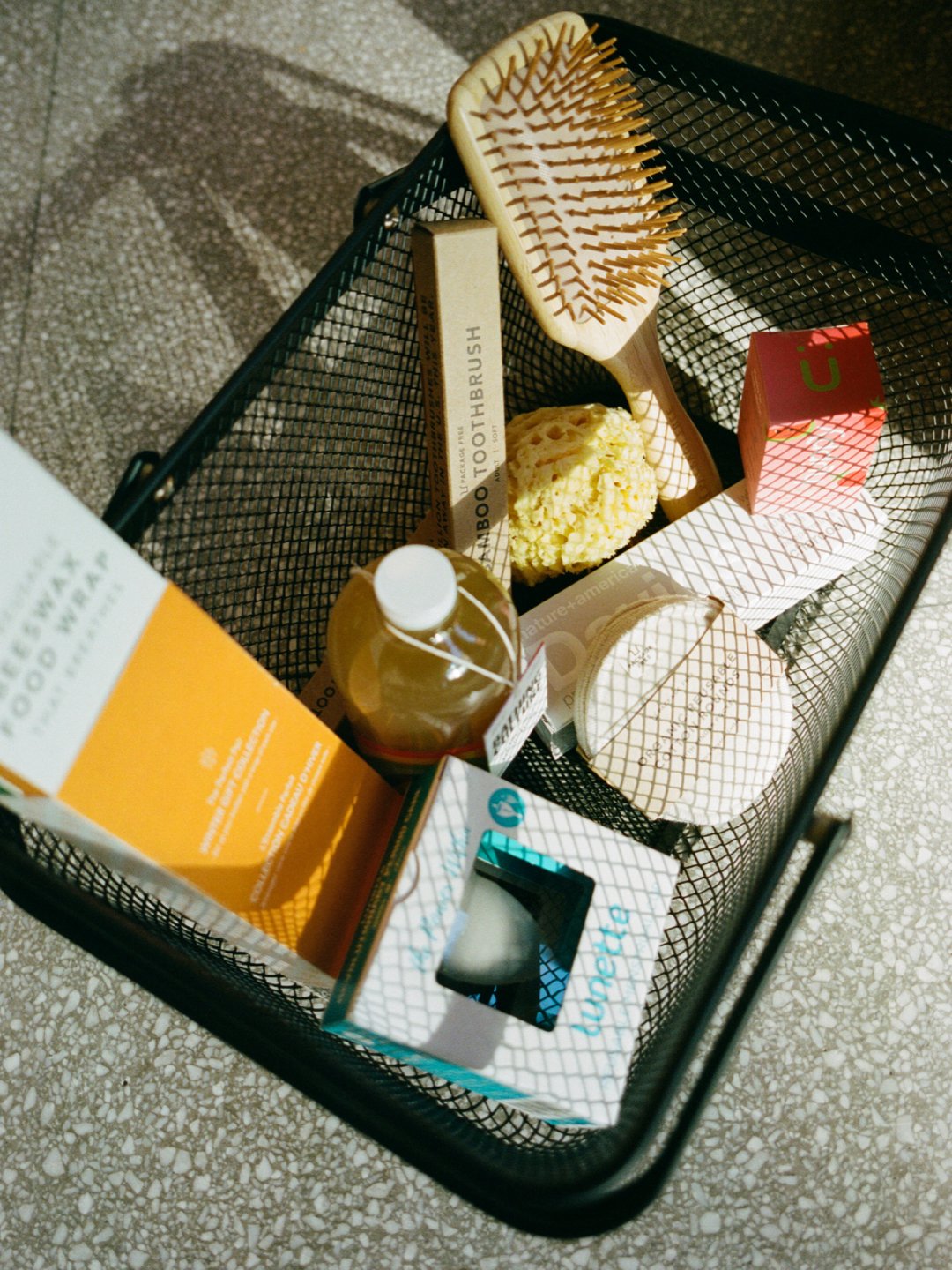Lauren Singer
Getting stuff done with

Getting stuff done with Lauren Singer

Meet Lauren Singer, zero-waste environmentalist and founder of Package Free.
Tell us about your journey.
I started Trash is For Tossers as a result of studying environmental science in college, and being surrounded by all of the problems people create for the environment and other people every single day. It was really overwhelming and made me really angry. I spent the first three years of my career in environmental science protesting. Protesting against the oil and gas industry, protesting for everything that I hoped the world would look like. And, ultimately, what I realized is that protesting is great, grassroots activism is incredible, but there was a really big misalignment between the way that I lived my everyday life and the type of world I was protesting for and hoping to see. While I was protesting against the oil and gas industry, and helping to fight to take down Haliburton, I was still using plastic in my everyday life, multiple times per day, every single day. So I was actively subsidizing this industry that I was so opposed to. I realized that I had to make a change, and my first change was really to move away from plastic. Trash is For Tossers is what I created to document my own journey moving away from plastic and, ultimately, waste, to help make that process more simple for anyone who wanted to start to live their life in alignment with values for environmental sustainability.
Did starting Trash is for Tossers help keep you accountable to your values?
When I started living this lifestyle it was really for no one else but me, and the planet. It was my way to not be a hypocrite and to align my values with my actions, and not just talk about the things I care about, but actually advocate for them through the choices that I was making daily. Realizing that it was a tool that could actually help people, and that living a lower or zero-waste lifestyle is a direct way that we as individuals can take steps to mitigate and remediate climate change really helped me feel powerful and empowered as an individual.
How have you seen the zero-waste movement change since you started your journey?
My class of environmental science peers was around forty people, and the community was so small, even in New York City and throughout the country. So, we all knew each other. Now, there are so many people who are participating in the zero-waste movement or reducing their waste everyday, who probably don’t even know me, but follow a lot of the foundation that I helped to set over ten years ago. And that’s amazing. To me, that’s what success is–realizing that you might just be one person, but you can start something and that can grow and expand and be bigger than you, and create a really large positive impact that takes on its own life. I really believe that we all have the power to create impact outside of ourselves, even if it’s small.
What inspires you?
I think injustice really motivates me. I think unfairness motivates me. I think problems motivate me. I try not to get mad at the way things are and ask, what can I do about it? Of course I’m going to be upset when I see injustice or things that are overwhelming, but I try to flip that narrative and say, okay, this is really shitty, this is really overwhelming, is there anything I can do? And if so, what is it? And that’s how I turn something that could be seen as negative into something that makes me feel powerful and capable.
What are you excited about right now?
It’s so easy to be overwhelmed because there are so many problems in the world. But there are amazing people who are taking initiative to try to solve them, and those people are so inspiring to me. What I’m excited about is trying to use the platform that I’ve built to help to share stories of other people who are creating positive impact and solving various problems so that they grow their missions. I’m really excited to tell stories.
What does sustainability mean to you?
To me, personally, sustainability means constantly reassessing what my values are and trying to live in alignment with them. I know that my North Star is creating positive environmental impact, so living sustainably means I’m doing everything in my power, every single day, to align with that. That means, obviously, not sending any waste to landfill–but also, there’s a non-measurable component of using my voice, my platform, and my power as an individual to help to raise awareness of different ways that people can use their resources and their energy to make impact. When I started living a zero-waste lifestyle, I thought that there was one world, and one way to consume, and one way do everything.But through transitioning to this lifestyle, I realized that there’s more than one way to live.
How can we make zero-waste more accessible to everyone?
People have been living without waste forever. Plastic is a new concept, and unfortunately, it sticks around until someone finds a way to break it back down. The more people learn about alternatives to sending things to landfill, the more there’s effort taken to create community infrastructure around lowering waste, like composting or recycling. It’s also really important to remember that every problem is an opportunity. For instance, some of my favorite organizations in New York City, like Lower East Side Ecology Center, were born out of a problem that led to democratizing a very sustainable practice, like composting. Remember that there’s community in this, educate yourself, and if there’s a problem, see if there’s a way to build community around it to help to solve it. And if you have access to resources to invest in supporting organizations that are already doing things to democratize sustainability, that’s a really great place to start.
What do you hope to see in the future of sustainable fashion?
I hope that the phrase “sustainable fashion” doesn’t exist. I hope that all fashion considers its end of life, that there’s regulation around what can be produced and manufactured, and that if something is put into existence or made it must have a clean end of life possibility. Right now, creators have the ability to make anything they want with no repercussions for what happens at the end of its perceived purpose. I think that needs to change, by increasing access to things like composting, by optimizing the reuse economy, and by creating legislation that holds producers accountable for what they’re putting in the waste stream. In short, I hope that sustainable fashion isn’t a thing, and that all fashion is created and disposed of in a way that is more closed-loop, thoughtful, and accountable.
How do you sustain yourself as an environmentalist?
Walking my dog, getting outside, making sure I move. I am the biggest advocate for therapy. I think therapy is one of the best investments in myself I can make, so definitely that. Regular intention setting, getting into nature more often, and trying to hold myself accountable to seeing the trees and getting back to the “why” of what I’m doing. Because, ultimately, it’s to protect the planet that I love and the people that live here from an unlivable situation. So getting back to the why and getting into nature is really important to keep me motivated when I’m not feeling so motivated.
What advice would you give to young people interested in pursuing careers in sustainability?
When I was in college studying environmental science, the only two options that really existed for careers in sustainability were politics and nonprofits. It’s so amazing that ten years later there are such a variety of industries that someone can get into–and more popping up every single day–to create and add value when it comes to sustainability. Every career, every industry, needs support when it comes to sustainability. So, my suggestion would be, do the thing that makes you feel the most excited and the most charged, and educate yourself around sustainability and ask yourself how you can incorporate it into the career path that makes you super excited. You’ll never be able to make positive impact if you’re not happy with what you’re doing. And even if your career isn’t aligned with sustainability, there are other ways to create impact outside of work. A lot people think that work has to be the only place that we add value in our lives, but hopefully there are ways to connect with community, start organizations, get involved with likeminded people, and support candidates through voting so that work doesn’t have to be the only place–and shouldn’t be the only place–that we hope to drive impact. There are other opportunities in our everyday lives, through the people we connect with and the things we do that can be really impactful as well.
How can people reading this support what you do?
One of the ways that I update what I’m doing most frequently is through Instagram @trashisfortossers. I started Package Free as a way to make living plastic-free more accessible. One thing is asking yourself what are your values in terms of sustainability, and what are ways that you can make changes every day to help align with them more–even if it’s just one thing. I always suggest that people look inside their trash can, see what they’re throwing away, and see if there’s one thing that they can find a more sustainable or waste-free alternative for. The average American makes about 4.5 pounds of trash per person, per day. So it’s not like we’re all these perfect people, and we’re creating positive impact. We’re starting at negative 4.5 in terms of overall impact, so every positive change is literally a positive impact.
What's the best thing you've ever found vintage shopping?
When I was in high school I got a pair of brown suede Chanel loafers for $15 around the corner from my house in this charity shop. I look at those every day, and they make me feel so satisfied and happy. I think I’ve worn them over a thousand times. I feel like I have really good secondhand karma.
Besides keeping all your waste in them, how else do you use mason jars?
I always have one with me when I’m traveling. They’re really good for coffee on the go, or if there’s no compost wherever I am, I put food waste or any compostable items in one and I can seal it and bring it back with me to compost Also, pickling, sprouting, they’re great for cups when you’re having a party. They’re so versatile. But I always suggest not buying new ones unless you absolutely have to, because so many lower-waste alternatives to packaged products come in glass jars, and while glass is an amazing alternative to plastic, it’s still energy-intensive to produce and recycle, so it’s better to reuse those and keep those in your cabinet for when you need one.
Favorite place to eat in NYC?
My kitchen. I’ve been trying really hard to support farmers markets and local produce and my boyfriend pretty much just eats vegetables, so we do tons of roasted vegetables and stir frys and just try out tons of recipes with vegetables to try to make them more interesting. I’m trying to focus on controlling my waste from farm to compost by shopping at the farmers market and supporting cookbook authors who are enabling people to cook at home.
Do you ever miss having a trash can?
Never. Like I said, the average American produces 4.5 lbs of trash per person, per day, which creates methane, which is bad for our climate and impacts all of us. But also, waste is really expensive. It costs us a lot of money as taxpayers to provide solid waste infrastructure. There’s a financial benefit to everyone reducing their waste a little bit more, as well. Waste doesn’t have to be bad; things like compost are really amazing and keep things within the natural cycle and process. Nature creates waste, but it’s used within the system to help things grow. I think if we had more composting infrastructure, and nutrients went back into soil, we wouldn’t have to use as many pesticides or fertilizer. We’d have healthier soil and better quality, more nutritious food. Those are things that I hope to see more of.
Meet some of the other people who are getting stuff done.

